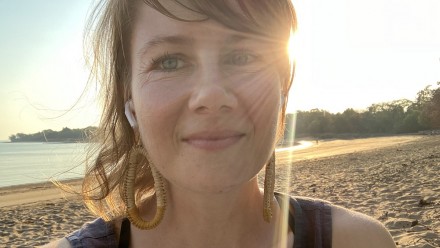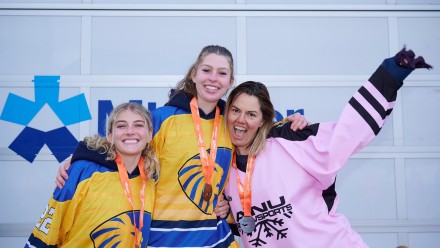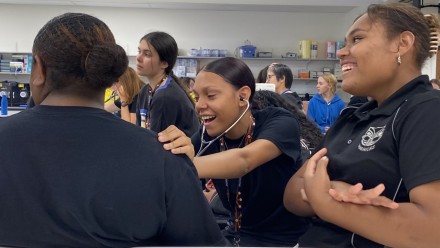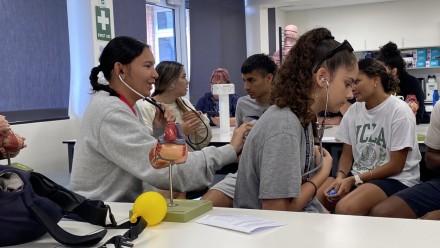National Indigenous Summer School: a learning opportunity for ANU educators too
With a jam-packed agenda over six days, the National Indigenous Summer School - organised by the Australian National University (ANU) Tjabal Centre - invites Aboriginal and Torres Strait Islander students from around Australia to immerse themselves in university life and consider what they might want to study after high-school.
This year’s theme ‘Our World, Our Future’ offered students the chance to examine global and high impact issues through the lens of various professions.
Dr Nicole Vargas, who along with Dr Stewart Sutherland a Wiradjuri Man, Dr Arnagretta Hunter and Professor Sotiris Vardoloukais organised the activities hosted by the ANU School of Medicine and Psychology said, “The students were highly engaged in discussions and activities about the effects of heat and bushfire smoke on the body and mind.”
Also in attendance, to support the students, was Aunty Jennie Gordon from the ANU School of Medicine and Psychology who is a Ngunnawal Elder from Goulburn. Aunty Jennie said of her experience with the students, “It was deadly to walk into a room full of young Aboriginal people who are considering university study.”
Dr Vargas said, “To give the students real-world examples of what studies in psychology and medicine could lead to, we discussed the role that clinicians (medical and psychological), public health officials and researchers play in understanding, supporting, advising and resolving issues related to extreme heat and bushfires.”
“I think the students especially enjoyed the hands on nature of the activities, including a mapping activity to help students understand how the lungs help to deliver oxygen to the body, and the effects of heavy smoke on the lungs. While the use of a stethoscope and an ultrasound machine supported discussions about the effects of heat on the heart and other organs in the body.”
It was not only the students that came away from the workshop with new learnings and perspectives.
Dr Vargas, who was involved in planning the Summer School activities for the first time, said, “The students shared details about their understanding of health based on their cultural beliefs, and as a result I learned a lot.”
“One of the students explained that when an Aboriginal person leaves the country they were born on, negative energy can enter their body.”
“Aunty Jennie went on to explain that is why it’s important for Aboriginal people who have left country to connect with the local Indigenous community and the elders as soon as possible, to help them from experiencing this negative energy.”
Dr Vargas added, “It’s true that a lot of what is taught in medicine and psychology is based on Western practice and perspectives. We tend to separate mind and body, treating specific ailments rather than the whole person. I learned that in Indigenous culture, wellbeing is a more holistic concept – combining social and emotional wellbeing, their connection to culture and, especially, their connection to the land as well.”
“With the new School of Medicine and Psychology we are focussed on taking an interdisciplinary approach to our research, education and clinical practices, integrating perspectives, knowledge and techniques across medicine, psychology and related fields. We’re also looking to integrate more Indigenous science and knowledge into what we teach. The Indigenous Summer School opened my eyes to Indigenous practices and culture and for that I am grateful.”
















